Israel Arrests Four For Smuggling Iranian-Made Explosives
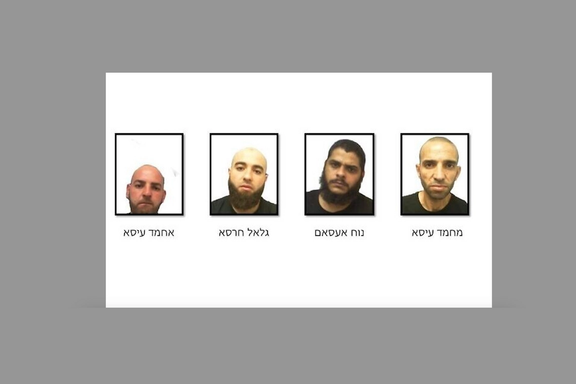
Israel’s Shin Bet security agency says it arrested four Arab-Israelis in July on charges of smuggling Iranian-made explosive devices into the country and ties to Hezbollah.

Israel’s Shin Bet security agency says it arrested four Arab-Israelis in July on charges of smuggling Iranian-made explosive devices into the country and ties to Hezbollah.
According to Shin Bet, three individuals from the northern Arab town of Kafr Qasim were arrested on suspicion of smuggling "a substantial quantity of high-quality weapons" into Israel. The agency added that, during their arrest, they seized two Iranian-made explosive devices along with other weapons.
In a separate raid in the central city of Lod, security forces detained another Israeli who was allegedly planning to use a similar explosive device for a criminal-related bombing.
“The Shin Bet investigation revealed that Hezbollah worked to recruit and operate an infrastructure of smugglers in Israel for the purpose of distributing unusual illegal weapons to various parties, including criminal elements,” the agency said in a statement.
The Shin Bet identified the suspects as Jalal Khursa, 28, Ahmed Issa, 30, and Muhammed Issa, 39, from Kafr Qasim, and Nuh Assam, 30, from Lod. They were indicted Wednesday on various weapons offenses, making the agency publicize details of the investigation.
“This affair once again illustrates the efforts of terror elements from Hezbollah and Iran to exploit the Arab citizens of Israel for [terror] activities against the state,” a senior Shin Bet official said, adding, “It also emerged in the investigation that the line between [terror] and criminal [activity] is extremely thin.”
Hezbollah has been accused in the past of being involved in weapons and drug smuggling attempts. Most illegal guns in Israel and the West Bank are thought to have been smuggled via Jordan, with far fewer attempts from Lebanon. In late July, the military foiled a weapons smuggling attempt from Jordan.
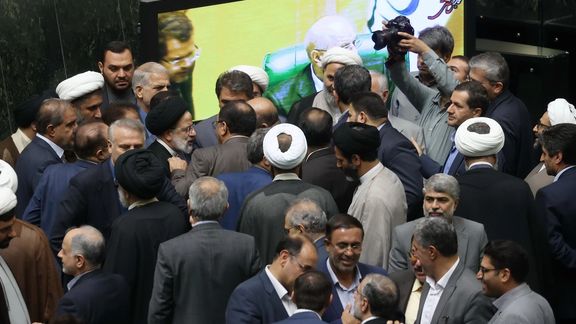
Iranian and regional media continue to assess President Ebrahim Raisi's performance as he enters the third year of his presidency.
Tehran's Khabar Online website quoted lawmaker Gholam Ali Jafazadeh Imanabadi on Tuesday, who stated that Raisi's track record over the past two years is characterized by failure. Imanabadi emphasized that Raisi should either step down or refrain from seeking a second term.
Imanabadi pointed out that Raisi has been unable to address unemployment, poverty, social tensions, and various other issues impacting the nation's welfare during the past two years. He further noted that Raisi's track record lacks any positive points and accused him of resisting the rule of law within the country.
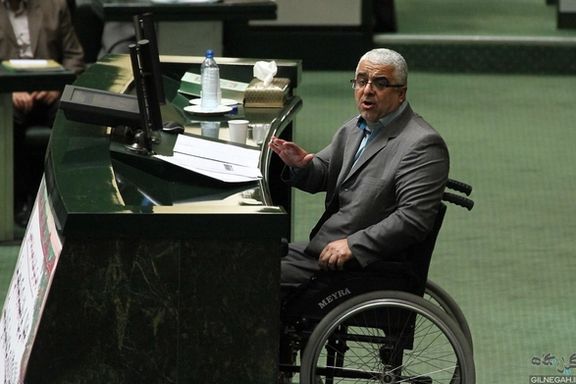
Former Presidential candidate Mostafa Hashemitaba echoed Imanabadi's sentiments about Raisi's weaknesses. Hashemitaba told Khabar Online that the government is failing to convey the truth to the nation regarding the dire economic situation. He also accused Raisi of dismissing suggestions made by well-wishers.
Similar to other critics, including prominent clerics Raisi met on the anniversary of his government, Hashemitaba also highlighted Raisi's failure to fulfil promises made to the nation during the 2021 presidential elections. He further criticized Raisi's administration for lacking effective solutions to the nation's problems.
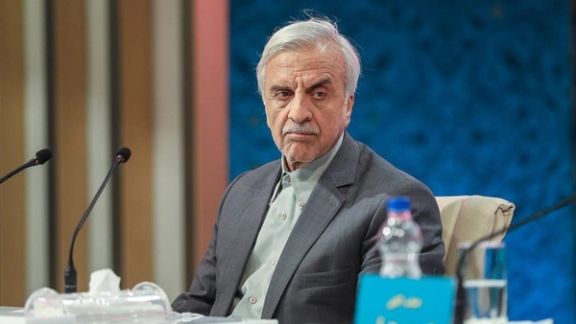
Academic Bijan Abdolkarimi, speaking to the Rouydad24 website, commented that the Iranian government is generally influenced by hardliners it cannot control. While trying to be fair to Raisi's government, Abdolkarimi noted that the radicals within the government are responsible for the nation's issues, rather than general mismanagement.
Abdolkarimi added that hardliner infiltrators and radicals within the government have caused significant harm, but the public is overwhelmed with various problems, making them less aware of these individuals. He also claimed that the radicals perceive no obstacles to their destructive activities, highlighting a dangerous divide between the government and the people.
Warning of a destabilizing gap between the government and the people, Abdolkarimi called for swift solutions to this issue. He stated, "Financial problems have deprived the nation of peace of mind. Given this circumstance, the government should prioritize the people's livelihood over issues like hijab. Iranians are grappling with unprecedented inflation, and naturally, their concern for issues like hijab is diminished."
Regarding hijab regulations, Abdolkarimi noted, "When a segment of society disagrees with a law, it signifies a lack of legitimacy for that law, and the government should not insist on enforcing it."
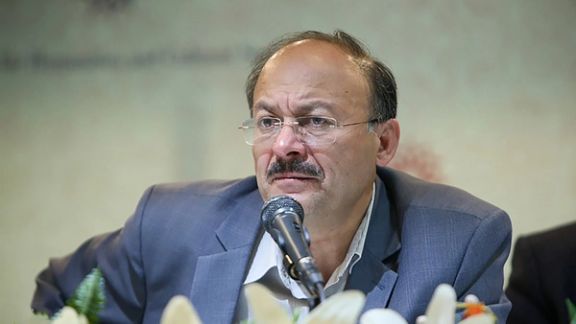
On August 17, the Hebrew website Walla referred to research conducted by the IDF Intelligence Division. It suggested that there is a growing belief among Western intelligence sources that Raisi's chances of succeeding the 83-year-old ruler Ali Khamenei are high.
While the idea of Raisi's succession has weakened due to his performance in the past two years, some Iranian analysts, like Mehdi Mahdavi Azad, believe he could potentially be an ideal supreme leader under a despotic military regime after Khamenei's death.
Walla's analysis states, "Two years into Ibrahim Raisi's tenure, Iran's economy is in a deep crisis, the hijab protests may resurge, but there have also been political achievements. Israel's assessment of Raisi's character describes him as 'one of the least qualified for his position,' and continues: 'Raisi broadcasts something weak and much less dominant than his predecessors.'"
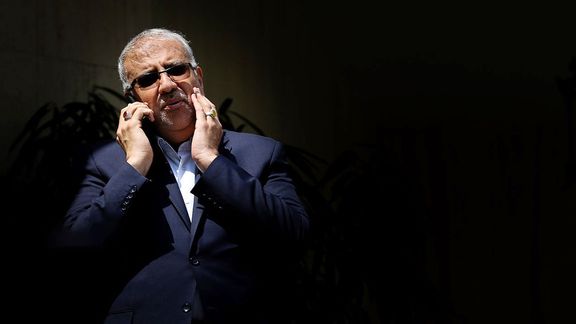
Iranians seem not to believe government assurances that it currently has no plans to raise gasoline prices, while some officials hint at a possible timeframe.
Iran’s Oil Minister Javad Owji and government spokesman Ali Bahadori Jahromi reiterated in the past two days that the administration would not increase gasoline prices, but oddly claiming that the long lines of cars at gas stations and the consequent black market are only the result of measures to decrease consumption.
Owji said that foreign-based Persian media are behind the rumors of an impending hike, but the government only plans to reduce consumption by restricting fill-ups at gas stations, claiming that “all refineries are operating at full capacity, with 150 million liters of fuel reserves available.”
But actually 150 million liters is a little over one day’s consumption, which means a critical shortage of supplies.
"Last week, we consumed 137 million liters per day, and today we have a consumption of 114 million liters, and nothing unusual has happened in the country," he explained. A source at the oil ministry told Iran International earlier in August that the National Iranian Oil Refining and Distribution Company (NIORDC), a department within the ministry, has released around 900 million liters of strategic gasoline reserves into the market.
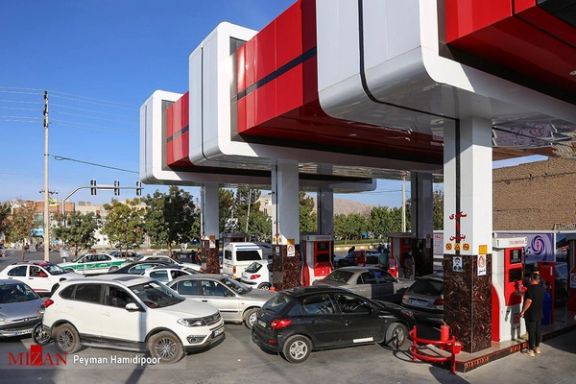
Many Iranians, however, are of the opinion that the regime is only delaying a price hike in fear of triggering protests ahead of last year's protest anniversary in September. Iran International reported in late July that the government has postponed tighter fuel rationing implementation due to the same reason.
Iran has been struggling with gasoline shortages since at least mid-2022 and was forced to release one-third of its strategic reserves by the end of the year. The government, which controls one of the world's largest oil and gas reserves in the world, sells gasoline at extremely low, subsidized prices, charging less than 10 US cents per gallon, or less than 3 cents per liter, while neighboring oil-producers have much higher prices, more in line with international market rates. Second only to Venezuela, Iran has the world’s cheapest gasoline price.
For years there has been talk of adjusting prices, but since 2018 Iran’s currency has dropped 12-fold and any increase needs to be huge to be meaningful in US dollars. One of the main reasons that the Islamic Republic has not managed to increase prices amid the current economic crisis is because it faced the worst wave of unrest in years from September 2022 to February 2023.
In November 2019, a government decision to increase fuel prices by 50–200 percent triggered nationwide unrest that lasted for two weeks. Regime forces killed at least 1,500 civilians, in the worst such crackdown in Iran. Iranians are concerned about a repeat of the bitter experience.
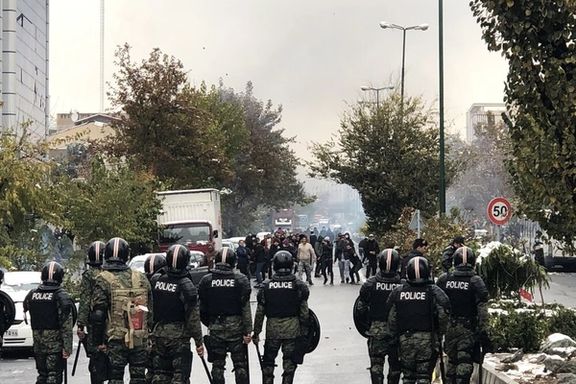
Lawmaker Jalal Rashidi Kochi said Tuesday that "People distrust officials and their words. If we touch the gasoline prices, people will take to the streets and protest…Our approach to gasoline was flawed from scratch. It means we are doing something fundamentally wrong, and the more we try to do it right, the worse it gets."
Reformist politician Morteza Moballegh told Hamdeli newspaper that the government is the main loser in the gasoline market because the congestion at the gas stations is proof that people do not trust the government despite their repeated claims of no change in prices. "The distrust is due to fundamental policies... These gentlemen (the current administration) are trying to impose some of their mindsets, which are not in line with the needs of today's Iran and the law, on the people. This situation provokes a reaction from society and has created serious problems for the people."
In the meantime, lawmaker Mohsen Zanganeh, the spokesperson for the budget committee at the parliament, said a rise in prices is not proposed in the budget for this year, meaning that “any possible increase will take effect from the beginning of the Iranian year 1403 (in March 2024).”
“However, the government has included the possibility in the budget that it can achieve energy savings through pricing and non-pricing policies," he emphasized. “Certainly, if the government intends to take such a measure (increase gasoline prices), the parliament will not allow it to happen without prior notice."
Ali Naderi, the CEO of the government’s official news agency IRNA, said earlier in the week that the non-transparent action regarding gasoline prices that took place in 2019 should not happen again, noting that it should be explained to people that “gasoline prices are not expected to remain fixed for the next 10 years.”
"Why do people accept that the price of bottled water reaches its real cost? For gasoline, too, this matter should be accepted, and it should be transparently explained to the people whether an increase in gasoline prices is planned or not,” he added.
Minds are set on a fuel price closer to international rates but there are also opinions fundamentally different, pointing out that the regime is not actually providing cheap fuel for the nation because it gains a huge profit in the prices and taxes on automobiles.
Jomhouri-e Eslami conservative newspaper said on Wednesday, "The people of Iran are paying for gasoline at the same global prices" as they paid a couple of times more than the real price for their cars compared with car prices worldwide. “Calculate the price of the cars you sell to the people as well. Then you will see that you don't offer a cheaper deal to the people of oil-rich Iran,” argued the paper addressing the government that controls the inefficient auto industry making old-model and inferior cars for very high prices.
The paper claimed that if the decision is put to a referendum, people will vote to buy both cars and gasoline at international prices.
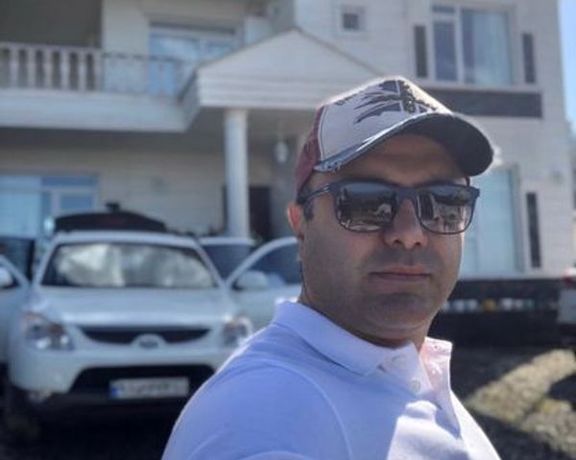
A 42-year-old Iranian citizen, who holds Dutch citizenship and lives in the Netherlands, has been detained in Tehran over suspicions of holding dual nationality.
According to information received by Iran International, Saeed Farahani had his passport confiscated upon entry into Iran two months ago. He was then summoned to judicial authorities and went to Evin Court but was arrested and detained earlier in August.
Since his arrest, Farahani has had no contact with his family, and his current status remains unknown.
It appears that he was detained due to suspicions of holding dual citizenship, but information received by Iran International indicates that he does not possess dual citizenship.
For many years, the Islamic Republic has detained Iranian citizens who reside abroad or who hold dual citizenship in an attempt to exert pressure on Western governments and to secure concessions in exchange for the release of these citizens.
Recently, Tehran and Washington reached an agreement that would secure the release of five American hostages imprisoned in Iran in exchange for the Islamic Republic gaining access to $6 billion of its blocked assets that were frozen in South Korea.
Commenting on this recent deal, Jake Sullivan, the White House National Security Advisor, stated that the US believes the potential agreement for the release of these five imprisoned American citizens by Iran is still on track, but he refrained from providing a timeline.
Based on this agreement, individuals such as Siyamak Namazi, Emad Sharghi, Morad Tahbaz, and two other unnamed American citizens are to be released. These individuals have already been placed under house arrest until the release deal is finalized.
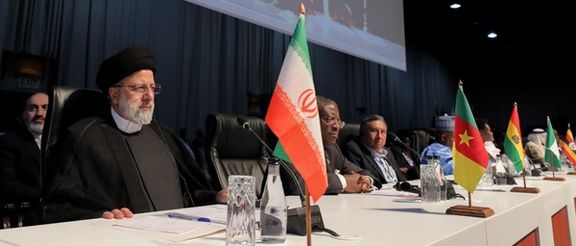
Iranian and Chinese presidents met on the sidelines of the BRICS summit Thursday and emphasized the importance of bilateral and multilateral cooperation, Tehran said.
The official government news agency IRNA carried a report on the summit headlined by a quote by President Ebrahim Raisi saying, “Iran’s membership in the bloc is opposition to American unilateralism.”
The BRICS group of nations reached a broad consensus to invite six countries - Argentina, Egypt, Iran, Ethiopia, Saudi Arabia and the United Arab Emirates - to join, in a move aimed at increasing the clout of a bloc that has pledged to champion the "Global South".
This is a historic expansion, which reflects the determination of BRICS countries to unite and cooperate with other developing countries, Xi said at the group's leaders' summit in South Africa's Johannesburg.
"This expansion meets the expectations of the international community and serves the common interests of emerging markets and developing countries," Xi added.

Raisi told the summit Iran Iran supports efforts by the BRICS group of emerging economies to move away from dependence on the US dollar.
"The Islamic Republic of Iran very resolutely supports the successful endeavors of BRICS in line with de-dollarization from the trade and economic interactions between the members and also making use of local currencies," he said.
Amid its economic isolation from the West and having few trading partners worldwide, the Islamic Republic views BRICS as a possible savior, with continuous propaganda domestically to present its membership as a critical accomplishment.
However, individual countries make economic decisions based on their interests and they see Iran, which is under US banking sanctions, as a risky proposition. The Islamic Republic has also created a heavily government controlled economic system not conducive to foreign investments.
In his meeting with China’s XI Jinping, Raisi emphasized that the invitation for Iran to join BRICS highlights the bloc’s opposition to the United States, and expressed hope that relations with China will be boosted. Tehran already has a 25-year cooperation agreement with Beijing, with details kept mostly secret, but Iranian officials have often referred to a Chinese pledge to invest $400 million in their country. However, in more than two years after the deal was officially concluded there is little sign of any investments.
IRNA quoted President Xi as having told Raisi that his country hopes to expand bilateral cooperation with Iran “to strengthen multilateralism.”
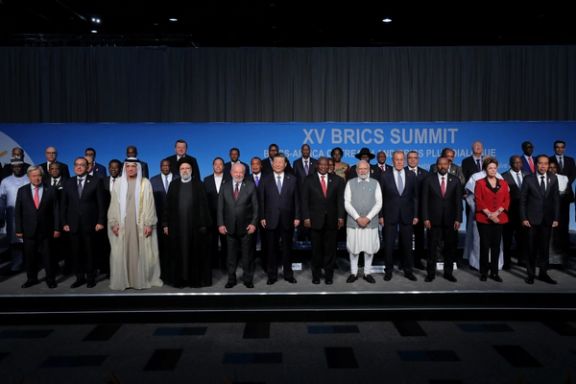
BRICS - whose acronym was originally coined by an economist at Goldman Sachs, currently comprises Brazil, Russia, India, China and South Africa.
Deepening geopolitical polarization in the wake of Russia's invasion of Ukraine and China's declining relations with the United States are spurring efforts by Beijing and Moscow to forge BRICS into a viable counterweight to the West.
"BRICS has embarked on a new chapter in its effort to build a world that is fair, a world that is just, a world that is also inclusive and prosperous," said South African President Cyril Ramaphosa, who is hosting a summit of BRICS leaders.
Henry Rome, Senior Fellow and Iran analyst at the Washington Institute, commented,“Iran’s invitation to the BRICS group likely will provide little in terms of practical benefits. But, like admission to the SCO, it will probably fuel the conviction among some Iranian leaders that Tehran can escape its isolation absent a nuclear deal.”
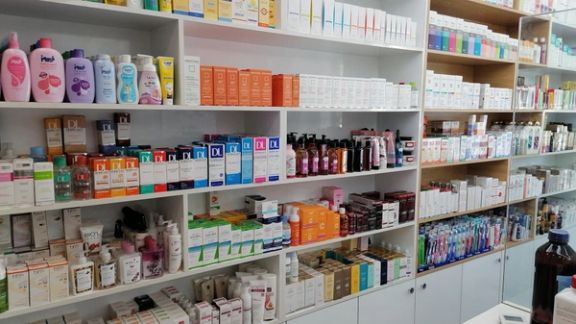
The head of Iran’s Health Economics Commission has warned about the state of the healthcare industry amid price hikes and lack of suitable infrastructure.
Mohammad Abdollahzadeh, head of the Health Economics Commission in the Tehran Chamber of Commerce revealed that the deteriorating state of Iran's pharmaceutical sector is worse than energy and electricity.
His remarks come following reports from Alborz Daroo and Toolid Daroo, prominent pharmaceutical companies, who have recently increased the prices of some medicines. The companies say that price hikes are due to increased costs for raw material.
Abdollahzadeh also highlighted the fact that Iran’s medical industry is operating with antiquated infrastructure, which is hindering the basic ability of production units. "Given the current circumstances, these production units are finding themselves without the means to acquire essential machinery," he said.
Citing data from pharmaceutical companies listed on the stock exchange, Abdollahzadeh said that since 2019, the depreciation rate within Iran's pharmaceutical sector has surpassed the rate of investment, posing significant challenges to sustainability and growth.
While Iranian authorities frequently link medicine shortages to US sanctions, Washington asserts that humanitarian assistance remains exempt from these sanctions. Iran annually imports medicines valued at more than $1.5 billion, with significant quantities originating from Europe, China, and India.






